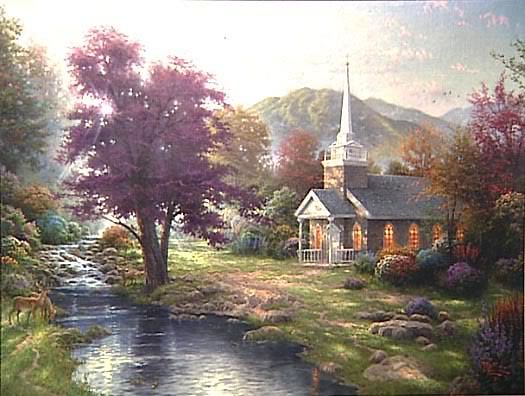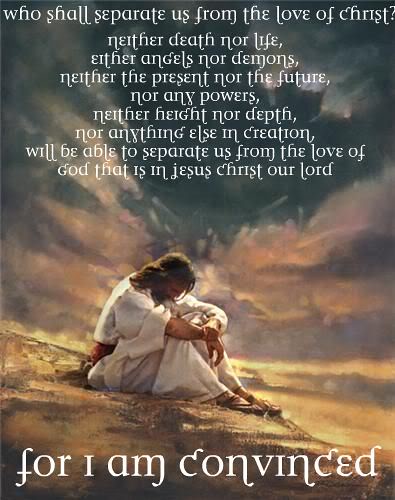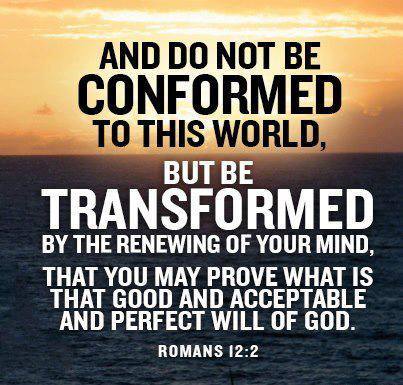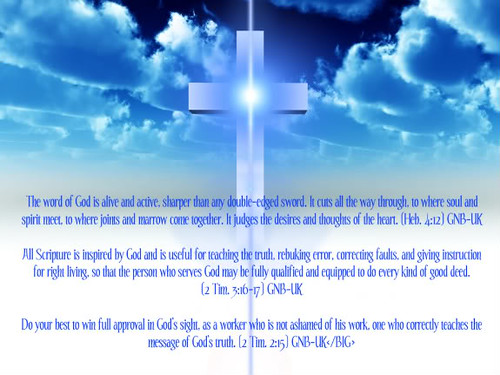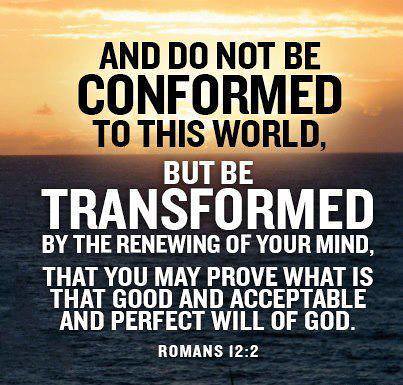EMBEDDED VIDEO SERMON in HD – NOTES
Our Lord’s last messages to His disciples was the principle
of the Vine dresser, the Vine, and the Branches.
Our Lord’s last messages to His disciples was the principle
of the Vine dresser, the Vine, and the Branches.
Please join us as we fellowship in the Word of God, listen to
Christian Music, Pray in Christ’s Name, and Praise the Lord
in our Hearts and Minds.
ALL ARE WELCOME
Hymn #1
Hymn #2
Preparing yourself for the study of God’s Word
Before we begin, if you are a believer in the Lord Jesus Christ (that is— you have trusted in Him for eternal life), it is important to prepare yourself to take-in God’s Word or participating in a Communion Service, so take a moment to name, cite or acknowledge your sins privately directly to God the Father. This will assure that you are in fellowship with God the Father and the Holy Spirit’s convicting ministry, also called the convincing ministry will then be able to teach you as the Holy Spirit is the real teacher and the pastor’s message is the vehicle the Holy Spirit uses to convince you what you are learning is true or not.
1 John 1:9, says—“If we confess [simply name, cite or acknowledge to God the Father] our sins [known sins], He is faithful and just to forgive us our sins [known sins] and to cleanse us from all unrighteousness [all unknown and forgotten sins];” NKJV (New King James Version); we call this REBOUND, read the full doctrine as to “why” we need to use 1 John 1:9 to grow spiritually. REBOUND
If you have never personally believed in the Lord Jesus Christ as your Savior (that is, believed in Him for eternal life), the issue for you is not to name your sins to God; the issue for you is to believe by faith alone in Jesus Christ alone for eternal life and you will be saved the very second you believe in Him:
John 6:47 says: “Most assuredly, I say to you, he who believes in Me [Jesus Christ] has everlasting life.” NKJV
Notice again what John 6:47 says, “he who believes in Me [Jesus Christ] has everlasting life.” It doesn’t say, “will have”; it says, “has.” Therefore, the very moment you believe Jesus Christ’s promise of everlasting life, you have it (it’s really just that simple), and it can never be lost or taken away from you (John 10:28-29). Furthermore, the gift of everlasting life (also called eternal life in scripture) is available to every human being; there are absolutely no exceptions.
John 3:14-18 says: “And as Moses lifted up the serpent in the wilderness, even so must the Son of Man be lifted up, that whoever believes in Him should not perish but have eternal life. For God so loved the world that He gave His only begotten Son, that whoever believes in Him should not perish but have everlasting life. For God did not send His Son into the world to condemn the world, but that the world through Him might be saved. He who believes in Him is not condemned; but he who does not believe is condemned already, because he has not believed in the name of the only begotten Son of God.” NKJV
Let us now bow our hearts and take a moment to prepare for learning God’s Word, if there is any known sin in your life, this is the time to just cite it privately to God the Father with your thoughts directed towards Him. With your head bowed and your eyes closed, you have total privacy in your mind and soul:
Our Pastor-Teacher is:
This ministry is non-denominational and is dedicated to
teaching the Word of God from the original languages and
making it available at no charge throughout the world.
teaching the Word of God from the original languages and
making it available at no charge throughout the world.
Sermon
NOTES
Unlike the bible study, these notes are not just for reading without watching the video. These notes are more designed to follow along during the sermon and to bring up the “hover pop-up scripture references” (some websites may require to left click the link, if that doesn’t work then look them up in your Bible) when the Pastor asks everyone to turn to that passage in their bibles.
Sermon: Our Lord’s last messages to His disciples was the
principle of the Vine dresser, the Vine, and the Branches.
The Vinedresser [God the Father] and the Vine [our Lord Jesus Christ] and the branches [believers] all have a very interesting analogy.
Three of our Lord’s parables are connected with vineyards (as Matt 20:1 ff; Matt 21:28-33) both teach.
It is the challenge to produce divine good and not human good or Christian service which is acceptable to God as it is found in the vine and the branch metaphor of John 15:1-8.
We will begin to realize the “unique doctrine” that is behind “all the principles of doctrine” so that we can easily say with Agur the son of Jakeh, the oracle.
A few things are mentioned concerning “The Word of God” which is being made ready for a spiritual intervention as well as being ready for anything or anyone that comes our way.
Psa 138:2 = a reference to the strength and the power of God’s Word to solve man’s problems.
Nothing can stop us if we do not want to be stopped.
Psa 138:2 I will bow down toward Thy holy temple, And give thanks to Thy name for Thy lovingkindness [2Pe 3:18] of the Old Testament] and
David says I give thanks also for Your truth [Your doctrine]; For Thou hast magnified Thy word or Your doctrine according to all Thy name to be above “ALL.”
What do we literally understand about the Divine Provisions that our Lord has given to all of His followers.
Psa 56 describes some of the most interesting principles of doctrine that the Lord provided for all of us to perceive, then to believe or metabolize and finally apply to us living in the spiritual life.
In Psa 56:3, we are given power over the problems of fear; Psa 56:3 When I am afraid, I will put my trust in Thee.
In Psa 56:8, David taught his followers about the problems of reversionism or backsliding called David’s wanderings.
Psa 56:8, David writes: Thou hast taken account of my wanderings [my fallen away];
In Psa 56:8, our Lord is said to put our tears in His bottle (that is His bottle of our hurts and sorrows);
Our Lord identifies with believers who have failed and feel guilty about their failures.
Our Lord is concerned about the fact that many believers do not know how to handle their past and because of that they are plagued by guilt, by condemnation, by the sins of omission.
James 4:17 “Therefore, to one who knows the right thing to do, and does not do it, to him it is sin.”
Psa 56:8, they are my tears and Your tears that are also in our Lord’s book; Psa 56:8 Thou hast taken account of my wanderings; Put my tears in Thy bottle; Are they not in Thy book?
There is also said to be a bottle for our tears inside us that talks about the pain and suffering friends whose names are written down in our Lord’s book.
Job 23:12 “I have not departed from the command of His lips; I have treasured the words of His mouth more than my necessary food.
We are now ready for the “Word of God” to be magnified in our lives as we are told throughout the Bible what the “Word of God” WAS and IS and “WILL BE” precious and few in the site of our Lord and our God.
1Th 5:24 “Faithful is He who calls you, and He also will bring it to pass.”
Prov 30:5 “Every word of God is tested; He is a shield to those who take refuge in Him.”
We begin by reading the context that our Lord began to teach to His Disciples who were now becoming Apostles.
The Vine represents our Lord and Savior Jesus Christ.
The Vinedresser represents God the Father.
The Branch represents the Believer.
Prin: As a part of life in the “Cosmic System,” we still live the “special life of blessing and devotion” that is for our Lord to use whenever He is faced with the Principles of “Living and Giving” unto our Lord.
The apostle John uses the vine, the vinedresser and the branches as a metaphor to represent the relationship of the believer with the Lord Jesus Christ.
A metaphor is a figure of speech in which one thing is likened to another.
A metaphor is a figure of speech in which a word or phrase is applied to an object or action to which it is not literally applicable.
Here we have the vine and the branches used as a metaphor to represent the unity between the Lord Jesus Christ and the Church-age believer.
The vinedresser metaphor refers to God the Father as the author of the Predesigned Plan of God.
The vine metaphor refers to the humanity of Jesus during the dispensation of the Hypostatic Union.
The vine is the basis for the production of divine good or fruit-bearing.
Fruit through the branch is a symbol of the Church-age believer producing fruit.
Prin: No fruit or production can be any better than the vine which produces it.
Because of positional sanctification, our union with the Lord Jesus Christ plus the grace provision of God, it is possible for the believer to produce divine good.
The vine metaphor emphasizes the fact that all precedence and all production of divine good in the Church-age comes from the vine – our Lord Jesus.
The branch is a metaphor for the Church-age believer.
“in me” is a reference to the believer in Union with the Lord Jesus Christ.
We are the branches in Union with the vine, the Lord Jesus Christ.
“dead branches” representing dead works on the part of the believer or the production skills minus spiritual skills.
Production skills minus spiritual skills = we know what we should be doing as far as our production skills are concerned, but the average believer lacks the spiritual skills needed to fulfill the production skills.
1. Two Power Options.
2. Three Spiritual Skills.
3. Four Spiritual Mechanics.
The two power options are being filled with the Spirit and the power of the word of God.
The filling of the Holy Spirit is the first power option and the first spiritual skill in the spiritual life.
The filling of the Spirit converts human I.Q. into spiritual I.Q., so that we have equality to learn spiritual phenomena.
The third spiritual skill is the problem-solving devices deployed on the FLOT line of the soul also known as the Forward line of troops which is a military acronym.
3. Four Spiritual Mechanics. This refers to the filling of the Holy Spirit, metabolized Bible doctrine circulating in the soul, the ten problem solving devices, the execution of the PPOG [predesigned plan of God].
The “dead branches” represent dead works on the part of the believer or the production skills minus spiritual skills which means that we produce human good with human power.
As a branch with life from the Vine, the “live branches” represent the ability of the believer who knows that divine good only results from living by using the spiritual skills.
The spiritual skills refer to what the branch “in me” that does not bear fruit refers to the believer who does not produce divine good.
Dead works is not fruit-bearing and is punishable or subject to divine discipline.
In verses 2, God the Father removes and takes away all dead wood, dead branches, branches which produce dead works.
God the Father takes away or removes the dead works through disciplinary suffering in two categories: The law of volitional responsibility which produces a tremendous amount of self-induced misery; and then Divine Discipline.
Matt 7:17 “Every healthy tree produces good fruit. And every diseased tree produces worthless [degenerate, or evil] fruit.
Matt 7:18 A good tree cannot produce bad fruit, nor can a rotten tree produce good fruit.
Matt 7:19 every tree that does not bear good fruit is cut down and thrown into the fire.”
1. The law of volitional responsibility which produces a tremendous amount of self-induced misery and divine discipline.
2. We also have the principle of pruning which is necessary to redistribute where the energy for divine production should go.
The branch that does bear fruit has to be pruned occasionally so that the spiritual skills will increase and maximize.
However, this is suffering for blessing.
Prin: Just as God provides divine discipline and punitive action for the non-fruit bearer, so God provides suffering for blessing for the fruit-bearer.
Now, in verses John 15:3-4, we are the cleansing of the branches for production.
Verse three is salvation cleansing of the branches.
Nothing in your life, including what you thought, what you said and what you do, can ever hinder your spiritual life = including your past.
Isa 43:25 “I, even I, am the one who wipes out your transgressions for My own sake; And I will not remember your sins.
Isa 44:22 “I have wiped out your transgressions like a thick cloud, And your sins like a heavy mist. Return to Me, for I have redeemed you.”
Nothing that ever happened to you before salvation should be a hindrance to your worship of the Lord and the production of divine good.
John 15:4, where verse four refers to post-salvation cleansing of the branches, which is in 1Jo 1:9.
Post-salvation refers to the cleansing of the branches from personal sins which took place after your salvation and is found in 1Jo 1:9 for us as it was found in Psa 32 for the Old Testament believers.
John 15:4 looks like this; “abide in me [Fellowship], and I in you [command understanding doctrine]. Just as the branch cannot bear fruit from itself, unless it abides in the vine, so neither can you, unless you abide in me.”
The fact that “abide” is a command means that it is an experience after salvation and not a reference to positional sanctification.
Abide” = command to R&R (rest and relax);
Experience = lifestyle of the believer.
Positional = how our Lord looks upon all believers.
God for your life].
We are never commanded to be in Union with Christ and this is a command to remain in fellowship with God through the use of 1Jo 1:9, so that divine good can be produced.
The the branch in John 15:2 is positional sanctification, but the branch commanded to abide in John 15:4, is the believer mandated to experiential sanctification through the filling of the Holy Spirit.
Verse 4, “I in you” = a command for the believer to learn and metabolize Bible doctrine where the Lord and His thinking is revealed in us — and that would be Gal 2:20 for every believer.
Hymn #3
The following link is to a good-news message describing how one can receive eternal life:
Ticket to Heaven, it was written for anyone not absolutely certain about of their eternal future.
